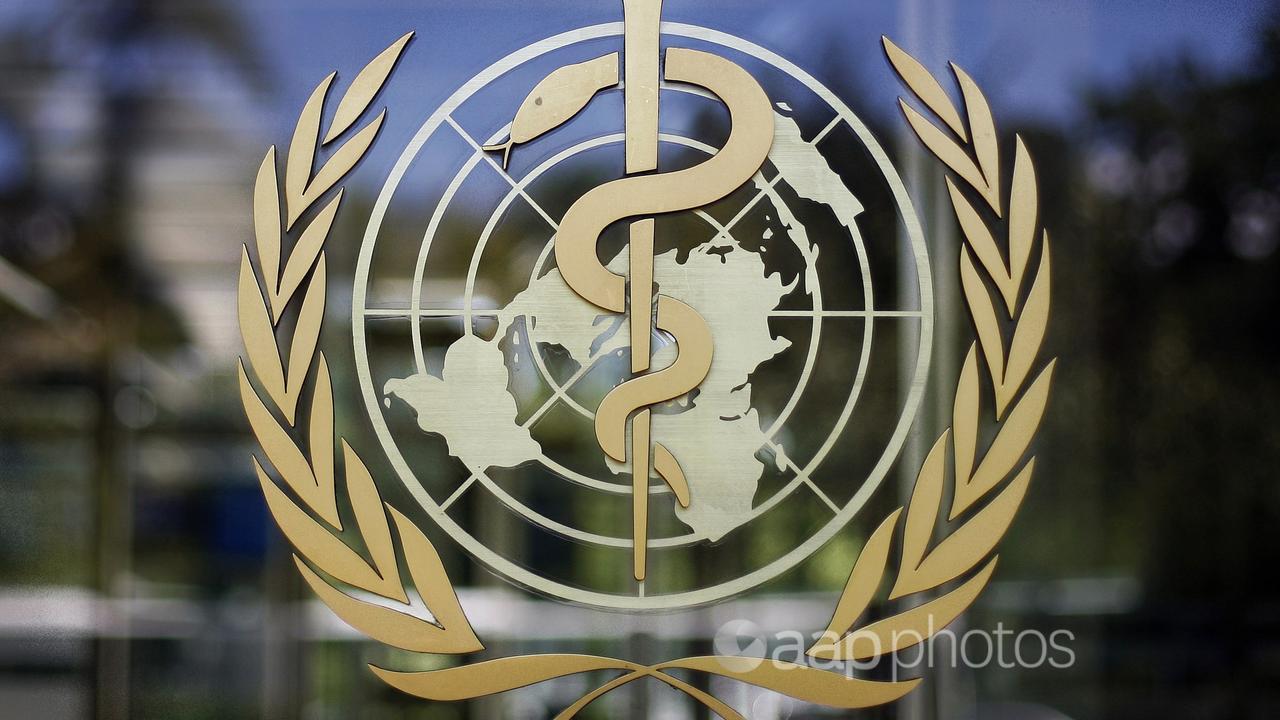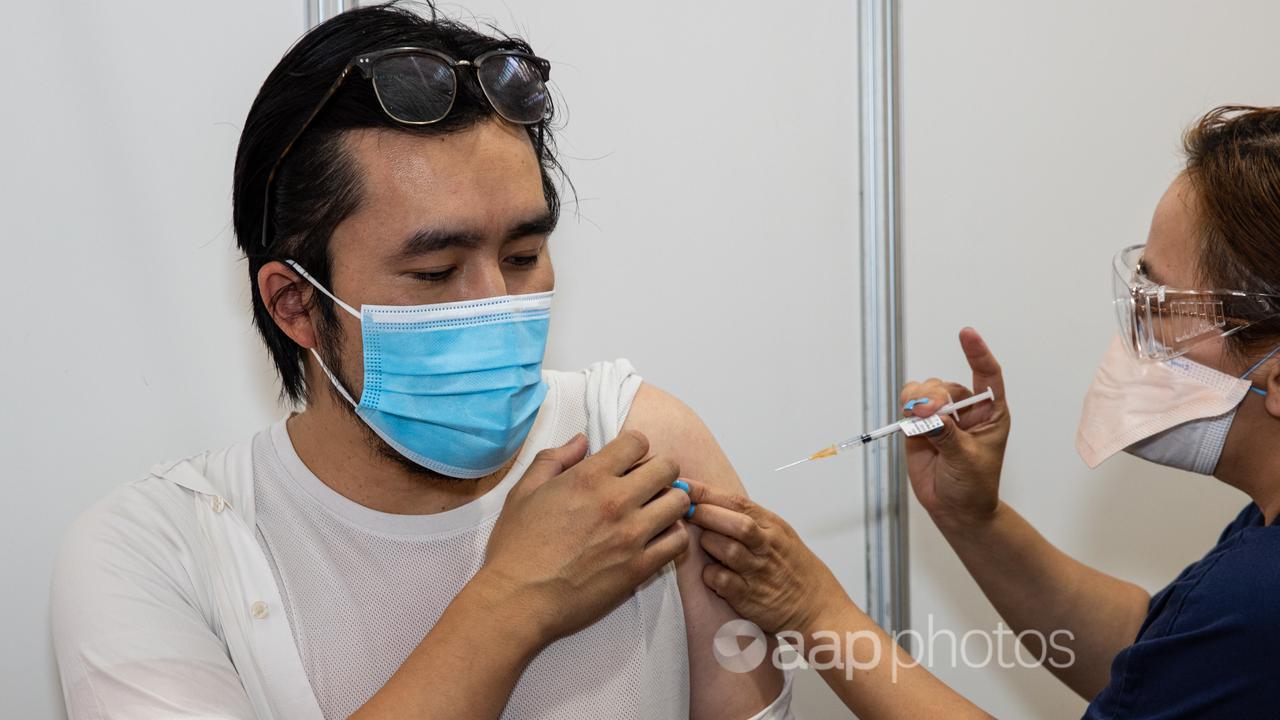AAP FACTCHECK – The mpox outbreak is a cover-up for adverse reactions to the COVID-19 vaccines, social media users are claiming.
This is false. Mpox is caused by a virus that has been causing outbreaks since the 1980s and the recent outbreak is in some of the least COVID-vaccinated countries in the world.
The claim appears in a video posted on Facebook in which financial analyst David Martin claims “there is no monkey pox outbreak of any concern whatsoever”.
“But what there is,” he continues, “is a pox-like side-effect of people’s response to their immune failures around receiving the injections of the spike protein.”
Dr Martin – who is not a medical doctor – then goes on to claim mpox, previously known as monkey pox, is a cover-up of COVID-19 side-effects.
“The point is yes, we should be concerned, but we shouldn’t be concerned about monkey pox. What we should be concerned about is the fact that the institutional lie is being sold to cover up a genuine consequence of the mRNA injection.”
The Facebook post includes the caption: “Dr David Martin on how Monkey Pox is just a cover up for Covid jab adverse effects.”

Mpox, however, predates COVID-19 vaccines by many decades and experts confirm the claim is false.
The virus that causes mpox was discovered in laboratory monkeys in Denmark in 1958 and is related to the smallpox virus, according to the World Health Organization (WHO).
It was first recorded in humans in the Democratic Republic of the Congo (DRC) in 1970, and is endemic in central and eastern Africa.
Symptoms include sores that develop into distinctive, liquid-filled blisters, as well as enlarged lymph nodes, fever, headache, muscle ache, back pain and low energy.
There have been outbreaks in Africa since the 1980s, according to the WHO, and an outbreak was recorded in the US in 2003.

In 2022, a less severe form of mpox – clade IIb – began to spread around the world, primarily via sexual relations between men, which led to the WHO declaring a Public Health Emergency of International Concern (PHEIC).
Following another outbreak of a more severe strain (clade Ib) this year, the WHO declared another PHEIC in August.
University of Auckland vaccinologist Helen Petousis-Harris told AAP FactCheck the Facebook claim was “entirely unfounded and scientifically baseless”.
“There is zero credible scientific evidence linking the COVID-19 mRNA vaccines, or any vaccines, to mpox,” Dr Petousis-Harris said.
“The notion that vaccines designed to combat COVID-19 could somehow trigger a completely unrelated viral infection is biologically implausible.”
The side effects of the COVID-19 vaccines are well documented and mpox is not among them, she added.
While it is possible for people to develop a rash following vaccination, this rash does not look like mpox.

Joan Ingram, a medical advisor at New Zealand’s Immunisation Advisory Centre, told AAP FactCheck mpox is diagnosed by detecting the monkeypox virus in samples taken from lesions of those suspected of being infected.
“If the symptoms were from a vaccine-adverse event, the active virus would not be present,” Dr Ingram said. “There is no association with mpox and the introduction of COVID-19 vaccines.”
The most recent outbreak was also predominantly related to sexual relations between men, she added, with males representing 96 per cent of cases, which doesn’t match the distribution of the vaccine.
The countries experiencing widespread mpox cases are among the least vaccinated in the world, Dr Ingram said, while case numbers are low in countries with high vaccination rates.
According to the WHO, the overwhelming majority of clade Ib mpox cases in the current outbreak of concern are in the DRC, followed by Burundi, with 6644 and 564 cases respectively.
Burundi has the lowest COVID-19 vaccination rate in the world, according to Oxford University’s Our World in Data website, with only 0.3 per cent of the population having received one vaccine dose or more.
The DRC, meanwhile, is the 12th least vaccinated, with 16.6 per cent.
By contrast, 84 per cent of Australians and 83 per cent of New Zealanders have received at least one COVID-19 vaccine dose and have recorded 805 and 55 mpox cases respectively, though all these cases are of the less severe clade IIb.
Dr Martin has made several false COVID-19 claims that have been debunked by Reuters, FactCheck.org and the Poynter Institute.
AAP FactCheck has also debunked false claims Dr Martin has made about COVID-19 and vaccines.
The Verdict
False – The claim is inaccurate.
AAP FactCheck is an accredited member of the International Fact-Checking Network. To keep up with our latest fact checks, follow us on Facebook, Twitter and Instagram.
All information, text and images included on the AAP Websites is for personal use only and may not be re-written, copied, re-sold or re-distributed, framed, linked, shared onto social media or otherwise used whether for compensation of any kind or not, unless you have the prior written permission of AAP. For more information, please refer to our standard terms and conditions.


















